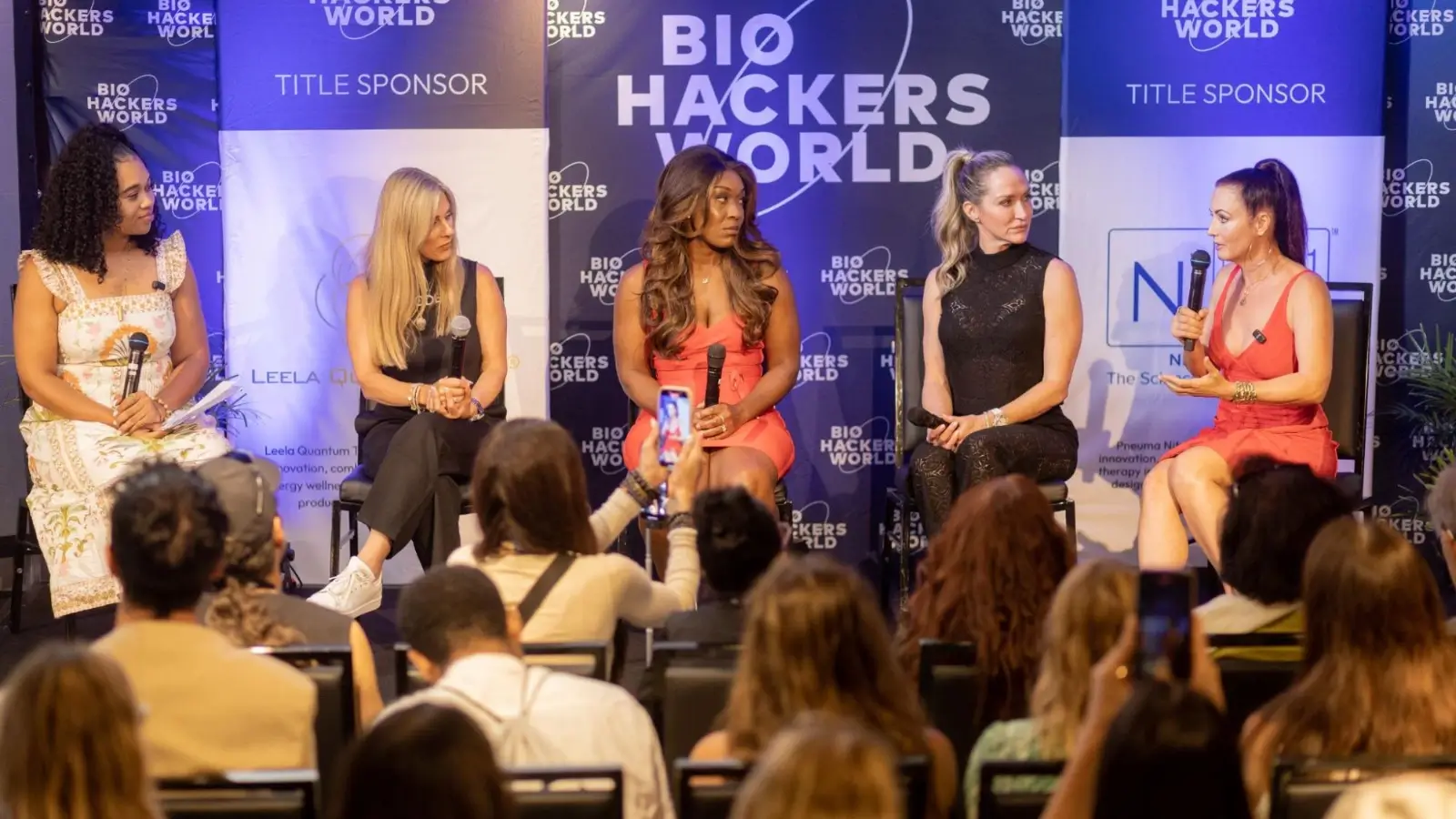


In the shimmering skyline of innovation, a new chapter is being written by women who are rewriting the narrative of health tech. Once a domain dominated by men, the world of biohacking is now seeing bold, visionary women emerge as founders, speakers, and thought leaders, champions not only of performance and longevity but of inclusive, female-specific health design.
Among the many arenas where their voices resonate is Biohackers World, the upcoming Biohackers World Conference & Expo, scheduled for November 1-2, 2025, in Miami, Florida.
According to the official Biohackers World website, the conference is a two-day wellness and longevity event hosted at The Ritz-Carlton, South Beach, bringing together experts, innovators, and enthusiasts to “explore the future of health, wellness, and longevity.”
The conference includes keynotes, discussions, immersive experiences, and networking sessions, designed to “connect, collaborate, and transform.” Attendee demographics reflect the diversity of the global wellness ecosystem:
35% Biohackers & Health Enthusiasts
15% HealthTech & BioTech Innovators
14% Medical Professionals & Functional MDs
12% Nutrition & Wellness Experts
9% Fitness & Physical Health Advocates
7% Health Startup Founders & Business Leaders
4% Scientists & Researchers
4% Wellness Authors & Influencers
These numbers come directly from the official Biohackers World data page, underscoring the inclusive mix of science, entrepreneurship, and lifestyle innovation at the event.
The origins of biohacking: rooted in quantified self, supplements, and performance optimization, were historically male-dominated. But women have begun to reclaim the narrative by addressing physiological realities that traditional health models ignored, such as hormone cycles, menopause, and fertility.
Historically, women were underrepresented in clinical studies, leading to an innovation gap that female biohackers are now closing. As The Cut observed in its article, “Women Biohackers Take Root in Silicon Valley”, the movement toward female-centric health innovation isn’t about imitation; it’s about evolution.
Alisa Vitti is one of the foremost leaders in female biohacking. Diagnosed with PCOS in her twenties, she founded Flo Living in 2012, one of the first femtech platforms focused on hormonal health.
Through her bestselling books and platform, Vitti promotes the concept of cycle syncing, adapting nutrition, exercise, and productivity to the phases of a woman’s menstrual cycle. Her science-based approach redefines biohacking from a female biology perspective, offering women tools once reserved for male-centered models of performance optimization.
When Ida Tin co-founded Clue, a menstrual health and fertility tracking app, she didn’t just launch a startup, she created a movement. Tin is credited with coining the term “Femtech”, now a multibillion-dollar industry encompassing technology-driven women’s health solutions.
By 2015, Clue had grown to 2 million users across more than 180 countries, according to Wikipedia. Tin’s leadership established a global framework for data-driven insights into female health, empowering women to become their own biohackers.
Kayla Barnes (Lentz) represents a new generation of female biohackers merging science, lifestyle, and public education. She co-founded LYV The Wellness Space, a precision health clinic, and hosts The Longevity Optimization Podcast, where she interviews thought leaders in health and neuroscience.
Barnes is a strong advocate for female-specific longevity protocols: addressing hormonal balance, sleep, recovery, and emotional regulation. In her public talks and interviews, including The Female Biohacker’s Guide to Living to 150 (YouTube), she argues that women must design their wellness strategies around unique biological needs rather than applying “one-size-fits-all” male biohacks.
Daphne Zohar, founder and CEO of PureTech Health and Seaport Therapeutics, is among the most successful women in biotech today. Her companies develop advanced therapeutics in mental health, cancer, and rare diseases, making her one of the few women leading a publicly listed biotech firm.
Zohar’s success bridges the biotech and wellness worlds, showing that scientific rigor and longevity research can coexist in human optimization.
Women in biohacking are not only transforming wellness practices; they’re redefining what leadership looks like in the $1.8 trillion global health tech market. According to McKinsey’s Femtech Report, female-led health innovation could unlock up to $1 trillion in global economic impact by 2040 if the industry embraces inclusive research and design.
Female biohackers are already embodying this vision. They’re centering female biology, building communities, and creating tools that merge empathy with analytics. Their leadership extends beyond gender; it redefines wellness as both a science and a social movement.
The upcoming Biohackers World 2025 Conference & Expo provides fertile ground for more women to rise. Curated tracks on female longevity, neurohormonal balance, and data-driven wellness could amplify diverse voices.
To foster deeper inclusion, industry experts suggest:
Dedicated female-led panels and mentorship programs
Visibility for early-stage women-founded health startups
Collaborative research showcases pairing medical and wellness innovators
As attendees gather under the palm-lined skyline of South Beach, this event represents not just a summit, but a statement: that the future of biohacking must be co-authored by women.
From Alisa Vitti and Kayla Barnes to Ida Tin and Daphne Zohar, women in biohacking are transforming their experiences into innovation.
Their work goes beyond supplements and trackers; it’s about designing the future of human health through inclusion, ethics, and empathy.
When women biohackers take the stage at Biohackers World Miami 2025, they won’t just be part of the conversation; they’ll be leading it.